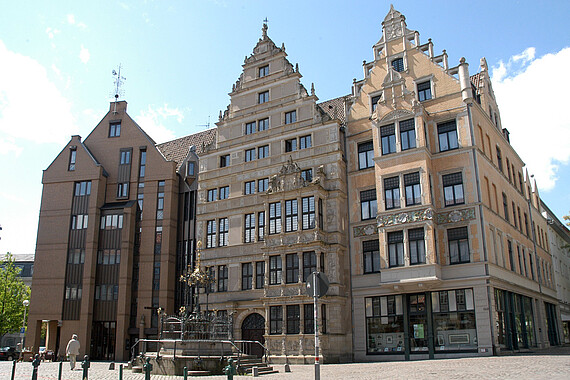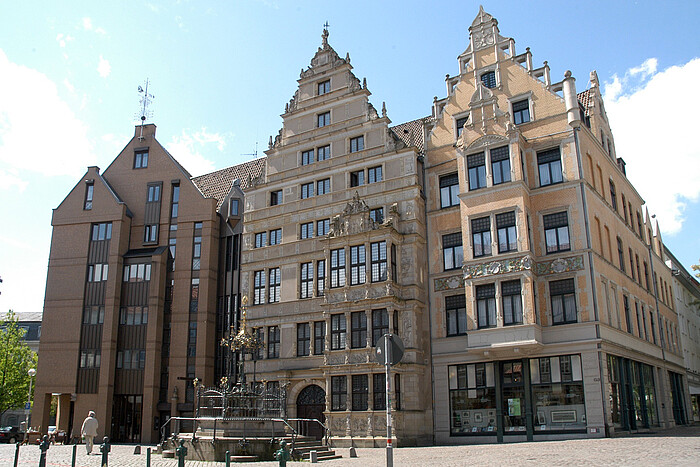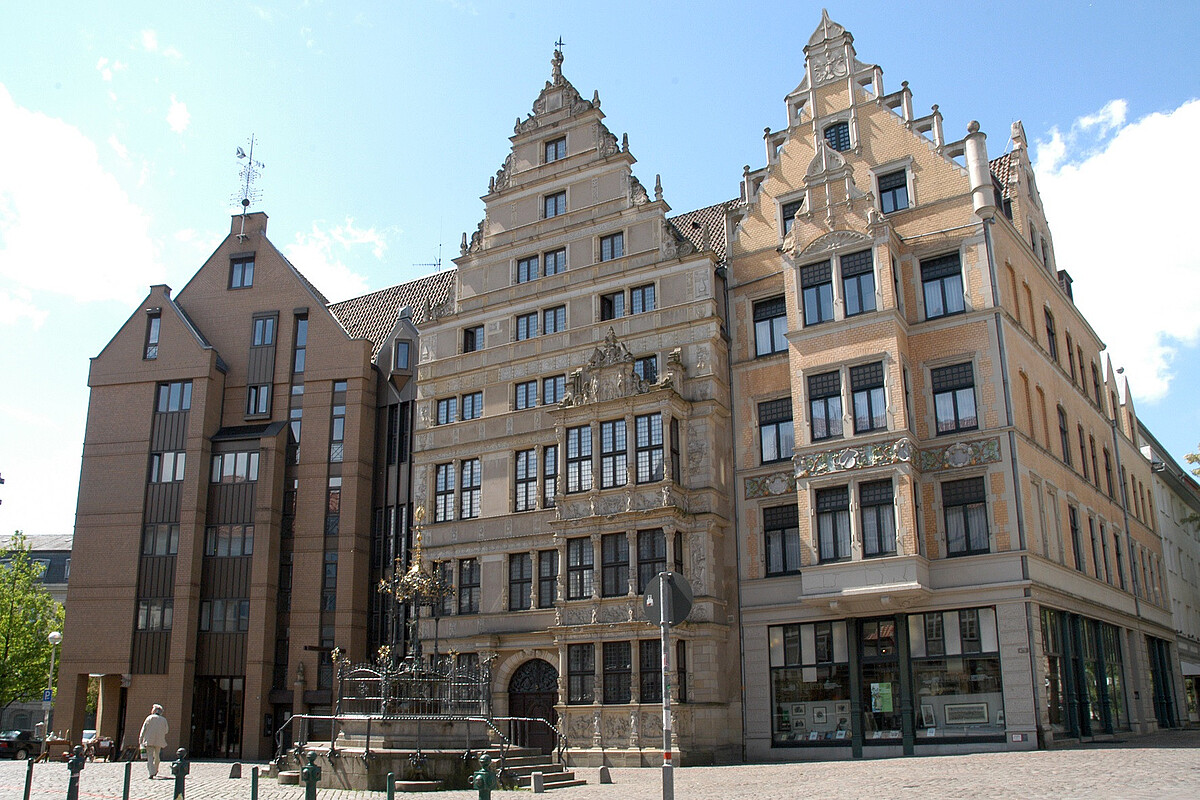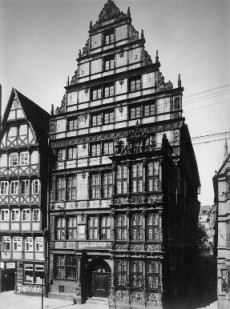


The Leibnizhaus received its name in the 19th century in memory of its most famous resident: the philosopher and polymath Gottfried Wilhelm Leibniz. Leibniz moved into his quarters here in 1698 after the Elector of Hanover rented the townhouse to house the court library and his librarian, advisor, and genealogist. Leibniz lived at Schmiedestraße 10 in Hanover until his death in 1716. It was here that he developed his essential philosophical and mathematical concepts. He inspired historical and religious studies and provided impetus for legal scholarship and the general organization of the sciences.
The historic Leibnizhaus was built in 1499 as the residence of a patrician family and was located approximately a 5-minute walk from our current guest and conference house on Schmiedestraße 10. Plans, photos, and fragments of the old house enabled the creation of a facade similar to the original. For example, as in the construction from 1652, the bay features depictions of scenes from biblical and ancient stories.



The newly built Leibnizhaus fulfils two purposes for the university and other higher education institutions in Hannover: On the one hand, it is the central guest house with additional flats in two neighbouring buildings. On the other hand, numerous academic events take place there. For this purpose, the Leibnizhaus accommodates a meeting room as well as seminar and conference rooms. In addition, there is a small Leibniz exhibition on the ground floor.
During Leibniz's time as court librarian, the Leibnizhaus housed the famous and extensive court library, which was a precursor of today's Gottfried Wilhelm Leibniz Library. In 1753, the actor August Wilhelm Iffland was born in the historic Leibnizhaus. In his memoirs and letters, the artist describes the house as the setting and stage of his childhood and adolescence.
During the Second World War (1943), the magnificent and historic building was destroyed in an air raid. In 1983, the building was reopened at its present location in the centre of the historic old town of Hannover, as a guest and conference house for higher education institutions in Hannover. When the house was rebuilt, the early Baroque era façade from 1652 was reconstructed. Since 2010, the Leibnizhaus is part of the network “Internationale Begegnungszentren und Hochschulnahe Gästehäuser in Deutschland” (IBZ).
Today, the Leibnizhaus offers scientists in Hannover a shared dialogue venue and a temporary home for visiting scientists from all over the world.




















